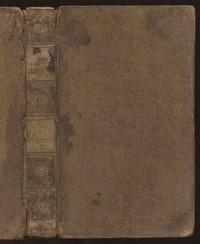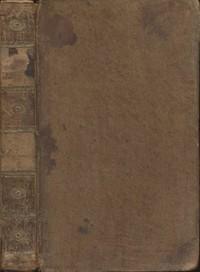|
|
Read this ebook for free! No credit card needed, absolutely nothing to pay.Words: 141332 in 23 pages
This is an ebook sharing website. You can read the uploaded ebooks for free here. No credit cards needed, nothing to pay. If you want to own a digital copy of the ebook, or want to read offline with your favorite ebook-reader, then you can choose to buy and download the ebook.

: Eighty Years and More; Reminiscences 1815-1897 by Stanton Elizabeth Cady - Women Suffrage United States History 19th century; Stanton Elizabeth Cady 1815-1902; Suffragists United States Biography; Feminism United States History 19th century@FreeBooksTue 06 Jun, 2023 CHAPTER LIST OF PORTRAITS. EIGHTY YEARS AND MORE. CHILDHOOD. The psychical growth of a child is not influenced by days and years, but by the impressions passing events make on its mind. What may prove a sudden awakening to one, giving an impulse in a certain direction that may last for years, may make no impression on another. People wonder why the children of the same family differ so widely, though they have had the same domestic discipline, the same school and church teaching, and have grown up under the same influences and with the same environments. As well wonder why lilies and lilacs in the same latitude are not all alike in color and equally fragrant. Children differ as widely as these in the primal elements of their physical and psychical life. Who can estimate the power of antenatal influences, or the child's surroundings in its earliest years, the effect of some passing word or sight on one, that makes no impression on another? The unhappiness of one child under a certain home discipline is not inconsistent with the content of another under this same discipline. One, yearning for broader freedom, is in a chronic condition of rebellion; the other, more easily satisfied, quietly accepts the situation. Everything is seen from a different standpoint; everything takes its color from the mind of the beholder. I am moved to recall what I can of my early days, what I thought and felt, that grown people may have a better understanding of children and do more for their happiness and development. I see so much tyranny exercised over children, even by well-disposed parents, and in so many varied forms,--a tyranny to which these parents are themselves insensible,--that I desire to paint my joys and sorrows in as vivid colors as possible, in the hope that I may do something to defend the weak from the strong. People never dream of all that is going on in the little heads of the young, for few adults are given to introspection, and those who are incapable of recalling their own feelings under restraint and disappointment can have no appreciation of the sufferings of children who can neither describe nor analyze what they feel. In defending themselves against injustice they are as helpless as dumb animals. What is insignificant to their elders is often to them a source of great joy or sorrow. With several generations of vigorous, enterprising ancestors behind me, I commenced the struggle of life under favorable circumstances on the 12th day of November, 1815, the same year that my father, Daniel Cady, a distinguished lawyer and judge in the State of New York, was elected to Congress. Perhaps the excitement of a political campaign, in which my mother took the deepest interest, may have had an influence on my prenatal life and given me the strong desire that I have always felt to participate in the rights and duties of government. My father was a man of firm character and unimpeachable integrity, and yet sensitive and modest to a painful degree. There were but two places in which he felt at ease--in the courthouse and at his own fireside. Though gentle and tender, he had such a dignified repose and reserve of manner that, as children, we regarded him with fear rather than affection. My mother, Margaret Livingston, a tall, queenly looking woman, was courageous, self-reliant, and at her ease under all circumstances and in all places. She was the daughter of Colonel James Livingston, who took an active part in the War of the Revolution. My mother had the military idea of government, but her children, like their grandfather, were disposed to assume the responsibility of their own actions; thus the ancestral traits in mother and children modified, in a measure, the dangerous tendencies in each. Our parents were as kind, indulgent, and considerate as the Puritan ideas of those days permitted, but fear, rather than love, of God and parents alike, predominated. Add to this our timidity in our intercourse with servants and teachers, our dread of the ever present devil, and the reader will see that, under such conditions, nothing but strong self-will and a good share of hope and mirthfulness could have saved an ordinary child from becoming a mere nullity. Free books android app tbrJar TBR JAR Read Free books online gutenberg More posts by @FreeBooks
: A Tramp's Sketches by Graham Stephen - Russia Description and travel; Jerusalem; Russia Social life and customs; Graham Stephen 1884-1975@FreeBooksTue 06 Jun, 2023

: The Diverting History of John Gilpin Showing How He Went Farther Than He Intended and Came Safe Home Again by Cowper William Caldecott Randolph Illustrator - Humorous poetry English; Horses Juvenile poetry; Wit and humor Juvenile; Horsemanship Juvenile po@FreeBooksTue 06 Jun, 2023

: A Residence in France During the Years 1792 1793 1794 and 1795 Part IV. 1795 Described in a Series of Letters from an English Lady: with General and Incidental Remarks on the French Character and Manners by Biggs Charlotte Gifford John Editor - France His@FreeBooksTue 06 Jun, 2023
|
Terms of Use Stock Market News! © gutenberg.org.in2025 All Rights reserved.






